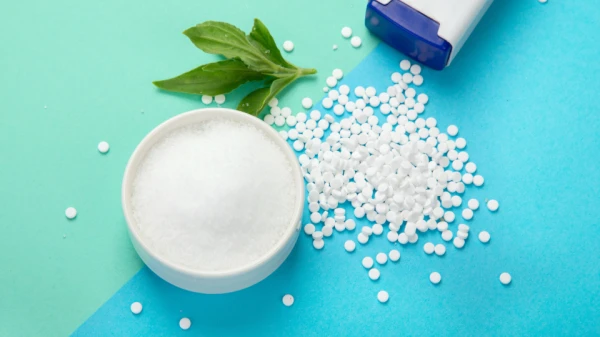
We love sweets not because we are 'spoiled'. Evolution has programmed us for this. For our ancestors, the sweet taste meant one thing: energy. Quick, accessible, and necessary for survival.
Today, food is available 24/7, and the craving for sweets hasn’t gone anywhere. Add to this the family habits of rewarding "good behavior" with chocolate, comforting with ice cream, and stress-eating cake, and the cycle continues. Doctor endocrinologist-nutritionist Yulia Simonova reminded us of the dangers of excessive sugar in our diet and explained how we deceive ourselves about its substitutes.
"Many children today are overweight. One of the reasons is sugar. It’s not just in candies. It’s in ketchup, low-fat yogurts, crispbreads, canned vegetables, and cereals 'with fruits' for kids. Everywhere the manufacturer needs to make the taste 'pleasant'," says the doctor. Hence the logical question: can we replace sugar with something 'healthier' and live peacefully? It’s not that simple. Widely promoted by proponents of healthy eating and lifestyle, substitutes turned out to be no healthier than natural sugar.
Extra Calories and Risks for Diabetics
There are caloric substitutes — fructose, sorbitol, xylitol, Jerusalem artichoke syrup, agave syrup. On the packaging, they may look 'natural', but in terms of calories, they are almost indistinguishable from regular sugar. For example, fructose also raises blood sugar and is not suitable for people with diabetes.
What About the Taste
There are non-caloric substitutes — erythritol, stevia, sucralose, aspartame, and others. They indeed provide sweetness with almost no calories. Some of them have been consistently studied and are considered safe. But there’s a catch: not all of them taste good. Stevia, for instance, has a bitterness, so it is often mixed with erythritol to soften the taste.
Choosing the Right Substitute
"If the goal is to replace sugar in a way that is sweet and does not lead to weight gain, then a working option is erythritol or mixtures like erythritol + stevia. They almost do not raise blood sugar, are safe, suitable for both adults and children (in adequate doses), and have no 'catch' like a couple of spoons of hidden syrup," advises the endocrinologist.
For Those Losing Weight
Unfortunately, no food additive, including sugar substitutes, changes eating behavior. If a person simply replaces sugar with stevia but continues to drink tea with three pieces of a healthy snack bar — nothing will change. In terms of calories, they are often equal to regular sweets. They just look 'correct'.
"Sugar substitutes are a tool. They are needed when you want to reduce sugar but are not 'ready' to give up sweets completely, have diabetes or prediabetes, need to control weight, but without strict prohibitions and breakdowns. They are not needed if this is an attempt to 'lose weight without changes in diet', for children under 2 years old (at this age, added sugar should not be present at all), or if it is used as a way to hide emotional eating," reminds the nutritionist.











